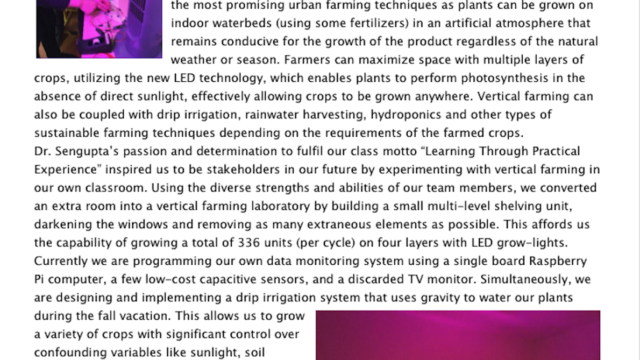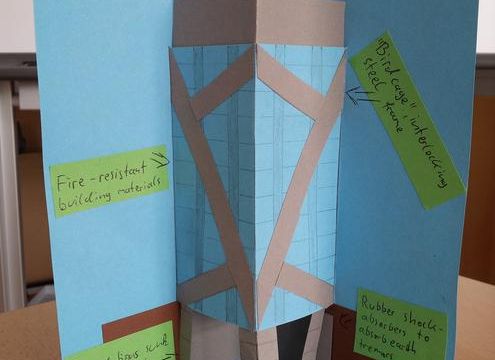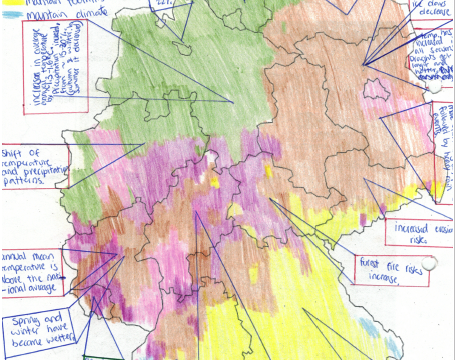Geography Day, 25th June, 2019
Theme: Save Your Planet and Love Your People
Error: the ipages flipbook item can’t be found
Bangalore/Bengaluru-Mumbai (India) Project, 17 to 27th January, 2019
Project Aim
- Academic and cultural exchange program with Jain International Residential School.
- Primary data collection for the Geography Internal Assessment Project. It involves:
- Formal and informal sector working class survey in Bangalore.
- Primary research on income inequality and material living standard.
- Research and primary data collection on the Newly rising Global Middle Class (NGMC) of Bangalore.
- Environmental bi-polar survey.
- Students will represent Germany at the Model United Nations Conference (MUN) in Mumbai (IIMUN).
Article Review:
Background Study
Growth of India’s middle class and expected consumption
Why India’s air pollution is so horrendous.
Bengaluru fails to battle air pollution as fog clouds data
Interpreting air pollution data: how bad is Bangalore air pollution
Completed Work
Primary data collection in Geography: International tourism survey in Hohenschwangau, IBDP 2019 batch
Within the group 3 subjects in IBDP, Geography is distinctive in its spatial dimension and occupies a middle ground between social and natural sciences. The Diploma Programme geography course integrates physical, environmental and human geography and emphasises on acquiring the elements of both socio-economic and scientific methodologies. IBDP as a student’s centric programme, ensures that the students should be able to make connection between the classroom teaching and to the real world situations, which in turn will help them to develop life skills and respect for alternative approaches, viewpoints and ideas. Primary data collection in geography is an integral part of the course, which enables students to verify the real world on a variety of scales and perspectives.
Students conducted two days field survey on the aspect of the socio-economic and environmental impact of international tourism in the Bavarian Alpine region of Hohenschwangau, worldwide known for the Neuschwanstein Castle built by the Bavarian king Ludwig II and later on became Walt Disney’s inspiration for the Sleeping Beauty castle, creating an enormous pull of the international tourists of around 1.5 million every year only on this touristic honeypot.
The field survey involved both the quantitative and qualitative primary data collection processes, mainly based on systematic and random stratified sampling techniques. It involved environmental bi-polar survey to analyse the environmental and perceptual carrying capacity as well as questionnaire based survey of the tourists and local businesses to analyse the pattern of touristic flow and economic multiplier. Students experimented with Plog’s and Cohen’s Psychographic model on travel personality to understand the patterns of the touristic flow and dealt with the issue of solid waste management to integrate Geography with CAS (Creativity, activity, service) experiences. Students also got the opportunity to enjoy nature and to indulge into different fun activities like hiking, enjoying local food and so on in their free time. Over all, it was an excellent holistic learning experience for the IBDP students as well as a practical lesson for collaborative planning and teamwork.
Learning Geography through Field Work: McDonald’s Vs. Burger King study project
One of the prime teaching approaches to IBDP Geography is student’s self-exploration and learning from the real world experiences. The role of a teacher in this case, is primarily of a guide and supervisor rather than a conventional classroom instructor. Experiences all over the world show that students truly enjoy applied-pragmatic approach of learning and are able to produce much better. One such applied learning project has recently been materialized in the higher-level geography course on Globalization. The project was designed to verify the absorption level of the classroom teaching on the theoretical aspects of glocalization, consumer culture and creation of brands.
Higher-level Y11 students were asked to perform a short fieldwork based study comparing two first food giants McDonald’s and Burger King based on their business strategies and global spread. According to the recent 2016 Statista data, the first food empire of McDonald’s with 35000 restaurants spans over 120 countries and accounts for 20% of the market share in the global fast-food industry while Burger King with 4% of the global market share in this sector operates 15000 stores in nearly 90 countries. Students were asked to perform product and customer based surveys in two of the outlets of these companies located in Braunschweig main station and to justify their findings. On the basis of the field data interpretation, students were able to conclude that the growth and global spread of these two companies are largely based on their franchise model, affordable pricing, innovation and attractive advertising, targeting particularly youth and women customer segments. Both the companies are trying to operate at the local levels with global flair. Students were clearly able to point out that McDonald’s success story is principally based on its innovative experimentation and aggressive growth strategies.
Innovative class works by the students
Food miles project by IBDP students 2017 batch
The food miles project represents a collaborative-holistic learning approach that seeks to make connections between different areas of learning. The term food-miles denotes a measure of the distance food travels from it‘s source to the consumer. This can be expressed either in units of actual distance or of the energy consumed during transport (IBO. Geography subject outline, 2009). The project had three main objectives including collection of the relevant data followed by systematic analysis and understanding of the topic and finally to produce visualizations in form of innovative maps and charts and displaying them on the food-mile tree. The CAS component of the project was integrated through ‘healthy food sale’ to raise fund for the people in need. It also aimed at empowering consumers to make informed choices. Students collected primary data from the field surveys of the selected eateries, fast food chains and departmental stores around the city of Braunschweig. They were very much interested to explore the production- supply pathways of Starbucks, the largest coffee house chain in the world in terms of the total revenue in 2015. In the end, students were able to appreciate the global connection of the present food industry and became aware of the associated carbon and water footprint. Following are some of the glimpses of the student’s own views on this project: ‘In our Geography Higher Level IB course, we have been learning about food miles. As a part of the topic ‘Globalization’, we learned about the impact the food industry has on an economic, environmental and political scale, both in individual countries as well as internationally. To sum up the topic, we created our so-called ‘foodmile-tree’, which displayed some case studies and related information. In collaboration, we held a healthy food sale in the cafeteria, offering salads, fruit kebabs and whole-grain sandwiches. Overall, it was a fun and educational experience for all of us and we were glad to have the opportunity to share our knowledge with our schoolmates!’ Nicole Bortfield (HL student, 2016)
‘I was able to grasp the concept of food mile. What really interested me was how one Starbucks coffee comes from 21 different countries which shows how severely connected our world is. Also when buying the ingredients for the salad, I gained insight on how far one vegetable travels to get to our plate. I really think that doing a project like this not only helps you to understand, but also gets you more interested in the topic as well.’ Saya Higuchi (HL student, 2016)





